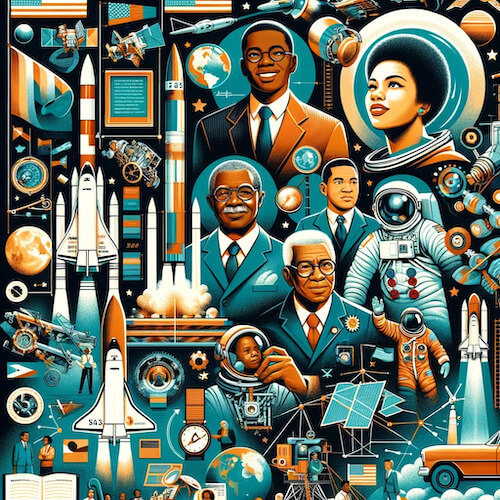A people without the knowledge of their past history, origin and culture is like a tree without roots.— Marcus Garvey
Black History Month is a joyous time of celebration where we investigate the stories of individuals who faced and overcame great opposition and challenges. When I read Black history, I find myself both curious and moved by the triumphs and tragedies that our people have experienced. While the remembrance of the past can be empowering, it can also be painful.
Black History Month is a time to recognize that the journey to the mountaintop is just as important as the moment when we stand upon it. When John Glenn became the first American to orbit Earth it was a milestone moment in American history. However, that moment would not have been possible without the work of Katherine Johnson, one of the first African American women to work as a NASA scientist.
In 1926, Dr. Carter Woodson, an African American scholar, educator, and historian, noticed the absence of Black history in textbooks. The 1920’s was a very delicate time in our history due to racism and local agencies of oppression and violence. This racism was strong, and the force of its opposition bred Black intellectual thinkers, philosophers, civic/political leaders, musicians/vocalists, and poets. Dr. Woodson and his contemporaries worked to create a “race space” where the achievement of African Americans could be celebrated. They called for an increase in the amount of Black history taught in America’s public schools, but it wasn’t until 1976 that President Gerald Ford formally recognized Black History Month.
Without this dedicated focus on telling the stories of Black Americans, generations may not have learned of the impact of individuals such as:
- Mary McLeod Bethune, the first African American woman to lead a federal agency.
- W.E.B. DuBois, sociologist, historian, and the first African American to earn a doctorate from Harvard.
- Sarah Jane Woodson Early, the first African American woman to serve as a university professor in the United States.
- Thomas Jennings, the first African American to hold a patent.
- Dr. Martin Luther King, Jr., prominent non-violent civil rights leader
- C.R. Patterson, founder of the first African American-owned automobile manufacturer.
- Harriet Tubman, abolitionist and social activist.
- Alexander Twilight, the first African American to serve in a state legislature.
- Madam C.J. Walker, the first African American female millionaire.
The records of our nation are preserved so we may learn from them. They tell us the stories of who we were and how we became who they are. Some stories aid us in becoming the best we can be, while others are needed to warn us of threats and dangers. Because of the complexity of Black history in America, both are critical for our development. They produce the pearls of truth, knowledge, and wisdom needed to guide us. During Black History Month and throughout the rest of the year, I see and celebrate every moment of our painful past that connects to our powerful triumphs. This is the race space that we play in, and it should not be forgotten.
Article exclusively written for cadia.org
Guest Authored by Kelle Shepherd-Bhavsar

